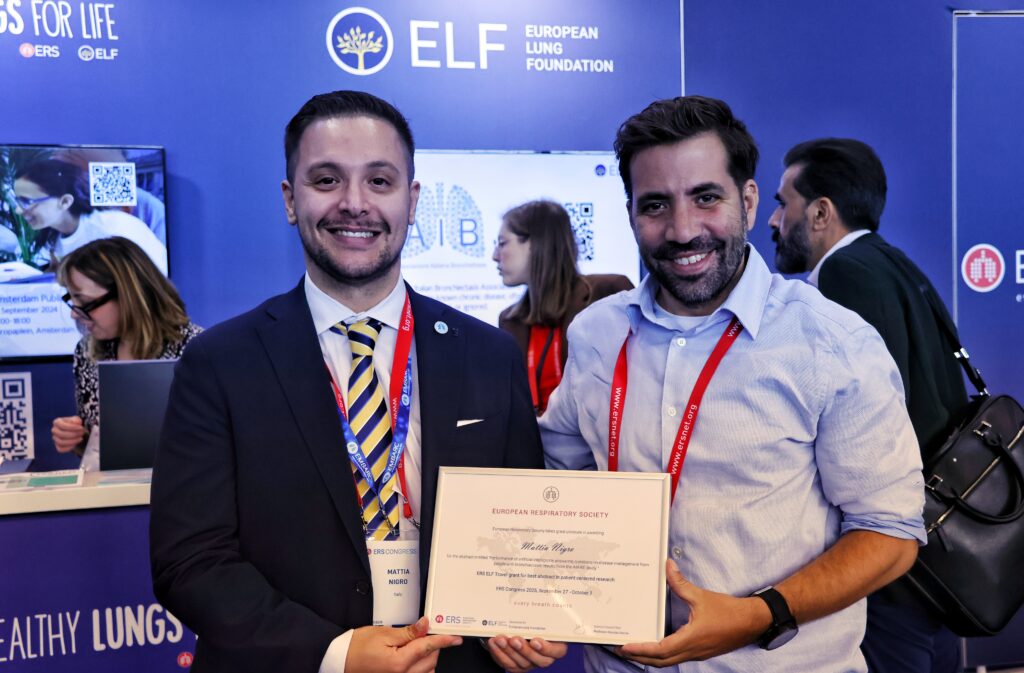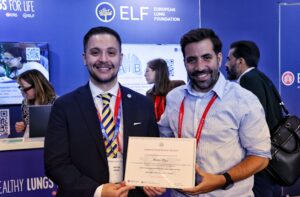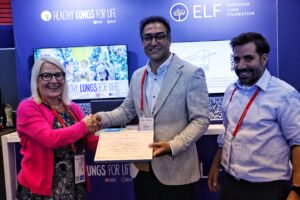
Every year at the ERS Congress, ELF presents abstract awards to acknowledge and commend the work of researchers. These are given for the best patient-centred abstract and the best abstract on a topic linked to the Healthy Lungs for Life campaign.
This year’s award went to:
Tugce Karamustafalioglu for the abstract entitled: The Impact of Extreme Heat Waves and Air Pollution on the Prognosis of Chronic Airway Diseases.
The study followed people with asthma and COPD to understand how extreme heat waves and poor air quality affect their health. Participants were assessed on normal weather days and again during extreme heat events. The research found that hot weather and pollution worsened airway inflammation, reduced quality of life, and increased symptoms in both asthma and COPD patients. These findings highlight the need for extra care and protective measures for people with long-term lung conditions during hot and polluted days.
Two winners were selected for 2025:
Mattia Nigro for the abstract entitled: Performance of artificial intelligence (AI) answering questions on disease management from people with bronchiectasis: results from the AIR-BE study.

Mattia Nigro and Dimitris Kontopidis
The study tested three AI programs, ChatGPT, Google Bard, and Microsoft Copilot, using questions developed by ELF patient representatives. Experts and patients evaluated the AI responses for accuracy, completeness, and clarity. The results showed that ChatGPT gave the most reliable, accurate, and understandable answers overall. Bard and Copilot also performed well, but were slightly behind ChatGPT. The findings suggest that while AI should not replace medical advice, it could be used to support patients in better understanding their disease.
Ali Dehghani for the abstract entitled: Comorbidities caused by occupational exposure to Chromium: the skin-lung axis.

Helen Parks, Ali Dehghani and Dimitris Kontopidis
This study explored how exposure at work to a chemical called chromium, which is used in metal plating and manufacturing, can affect both the lungs and the skin. Workers took allergy tests to see if their skin or their airways reacted to chromium. Tests showed that a small number had allergic reactions. Many also reported symptoms with three-quarters reporting skin issues, over half having asthma-like symptoms and most having runny or itchy noses. The findings suggest that chromium exposure can affect both skin and lungs, supporting the idea of a “skin-lung axis” where allergic reactions in the skin may be linked to lung problems. This highlights the importance of monitoring and protecting workers in high-risk industries.
These abstract awards emphasise the value of focusing research on the people affected by lung conditions and on the broader risk factors linked to lung health. Through them, ELF aims to: